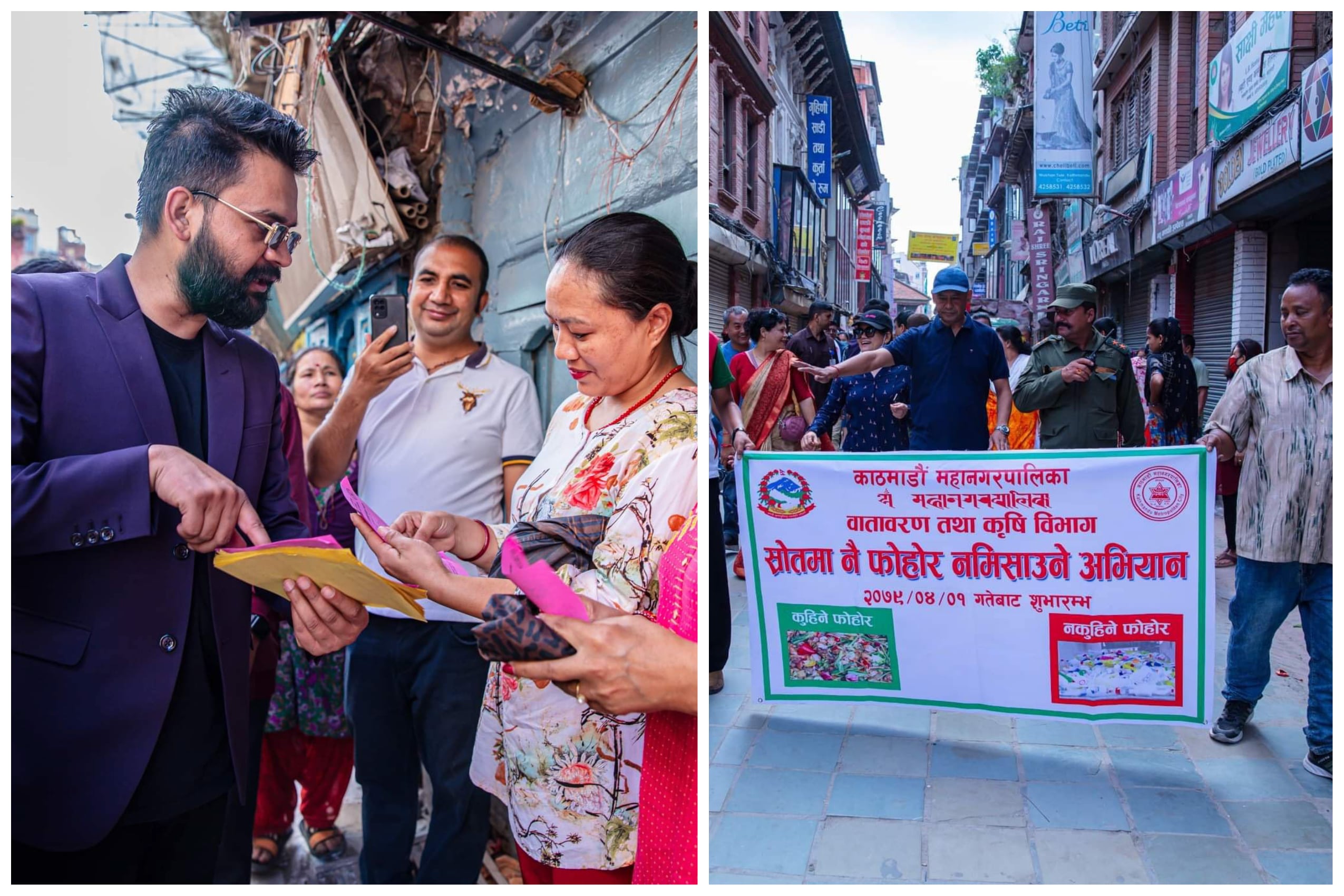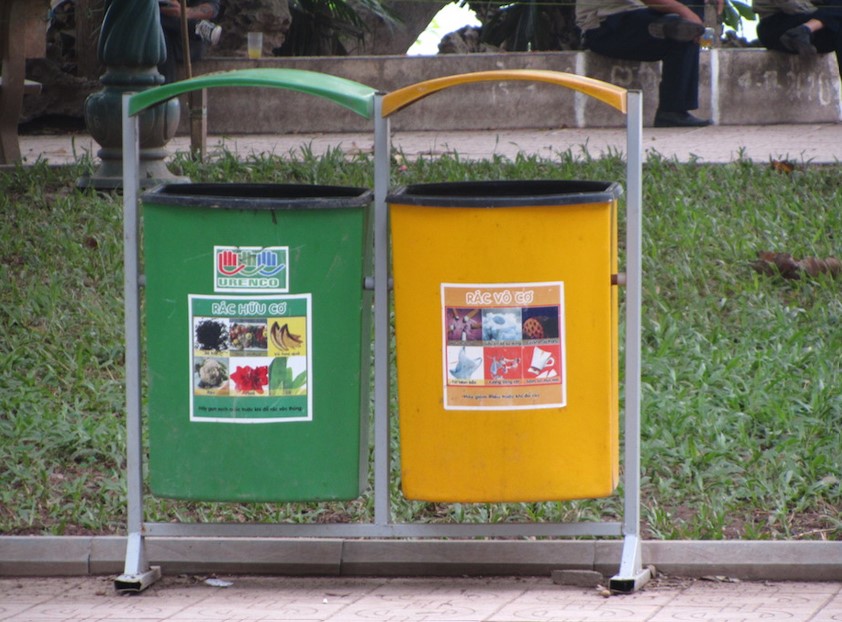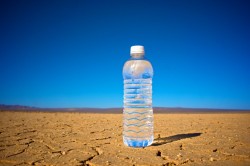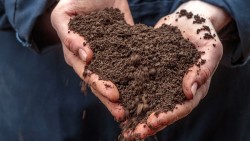Environment

Kathmandu Metropolitan City (KMC)’s new rules requiring city-dwellers to start separating garbage at home beginning July 17 (Shrawan 1) has received mixed results.
The rapper-turned-mayor Balen Shah’s appeal drew a lot of attention on social media, but on the ground, a majority of residents are still sticking to their old habit – of stuffing all kinds of waste in a single plastic bag or bin.
Sunil Lamsal, the engineer at mayor Balen’s secretariat told NepalMinute that KMC is currently achieving only “25 percent efficiency in organic waste separation and 80 percent efficiency in inorganic waste collection”.
That means that KMC is finding it extremely difficult to collect loads of fully organic or fully inorganic wastes, prompting garbage collection staff to separate garbage on their own.
And that’s forcing Balen Shah’s office to continue awareness and education campaigns in the city. “Mayor sir has launched a campaign called ‘Janata Sanga Mayor (Mayor with the people)’ and he himself has been going door-to-door to educate the residents,” Lamsal said.
What on earth is garbage separation?
Waste segregation or separation as KMC proposed is separating the waste into two categories: biodegradable and non-biodegradable in two different bins.
Biodegradable wastes easily decompose into manure, which can boost agriculture production. They include organic leftovers like, peels of vegetables and fruits, leftover foods, meats, wooden chips, flowers, and so on.
Whereas non-biodegradable wastes are those that don’t decay but can easily be recycled or reused. These include plastic bottles, jars, polythene plastic bags, metallic wastes, and glasses to name a few.

In developed countries, the 3R model – which means Reduce, Reuse and Recycle garbage at source - is widely followed to manage garbage.
Although management of glass breakages and medical wastes generated at homes can be tricky, KMC has yet to introduce rules to start separating them at the source.
KMC’s plans
“Currently, municipality will be storing both degradable and non-degradable waste in the Bhanchare Danda landfill site, but once the municipality finalises the location for the manure factory, the organic wastes will be diverted to the new site,” said Lamsal.
Currently, KMC is seeking land to build a manure plant, and for that, officials are eyeing Dakshinkali and Nagarjun sites. Yet, not much has been done to identify or lease a site.
“Organic manure will be distributed to locals at Sisdol and Banchare Danda after six months, made with current organic wastes being deposited these days.”
Garbage loads
Kathmandu valley currently generates 1,200 tons of garbage daily, of which more than half is said to be organic.
Lamsal said: “With this plan, the city will be able to turn Phohar (garbage) into Mohar (Money). We hope neighbouring villages will also be able to use organic manure in their fields.”“We can substantially increase the lifespan of the landfill site as more than half of the garbage will be repurposed, recycled and upcycled.”
How can you separate garbage?
- Make separate bins to collect the wet (organic) and dry (inorganic) waste;
- Line the bin with two different bags;
- Make a habit of not using more plastic bags, even for lining;
- Rinse glass /plastic containers of food matter and let them dry before tossing them to bins;
- Make sure each member of the family is well informed, to not mix the garbage;
- Make sure to reuse as much of the waste as possible, like plastic containers as flowerpot;
- The plastics, papers, can be sold to bottle and metal vendours;
- If you have a kitchen garden, try to upcycle the organic garbage to manure.






